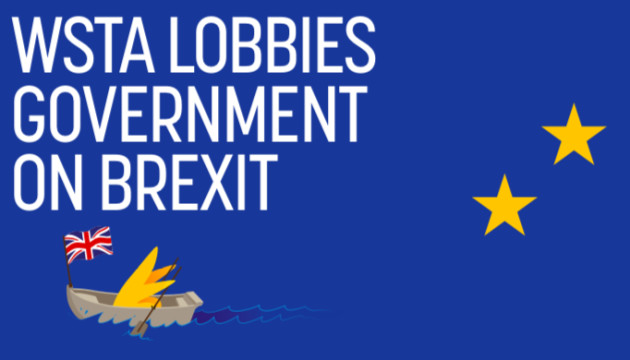
WSTA outlines key priorities for post-Brexit trade
Back in proactive lobbying mode, the WSTA outlined its key priorities and government asks on Wednesday as the UK hurtles towards the end of the Brexit transition period on 31 December 2020.
In a webinar, the WSTA reiterated its “slightly refined” priorities first set out in October 2016 and comprising five key points: minimise trade disruption to historic trade flows; suspend wine tariffs and remove 25% tariffs on US whiskey and bourbon; don’t introduce quotas and suspend/remove any existing quotas; and secure EU partnership agreement (inc EMCS access) and FTAs with key partners - US, Australia, New Zealand and Japan.
As a final point, it said we “don’t necessarily need to wait for the outcome of those negotiations – [we should] decouple”.
Simon Stannard, director of policy for the WSTA, said: “I see from today that the Department for International Trade is going to start trade negotiations with the US next week with apparently 100 officials also taking part in what is going to be one awesome Zoom negotiation.
“This is where we sort of start to drill down to some of our immediate priorities. We don’t want to make the outcome that we’re looking to secure necessarily dependent on a successful conclusion of those negotiations. Particularly because, for some of those, it might take a number of years, particularly with our international partners, and if negotiations with the EU break down, we might find ourselves with very little time to prepare for the consequences of no deal on 1 January 2021.”
In light of this, the WSTA has launched its Trade 21 project. Stannard said: “This is focusing on the government to say, wherever possible, decouple those asks from those trade negotiations, and particularly where the trade is asymmetric. We are net importers of wine – 99.5% of the wine we consume in the UK is imported.
“All our trading partners know that. So when there’s nothing clever from a negotiating perspective, try to secure something else in return, because ultimately it’s UK importers and UK consumers that suffer from any increased bureaucracy or tariffs or other sort of non-trade barriers.”
In terms of ‘key asks’, the WSTA called on the government to commit to an implementation period from 1 January 2021, not introduce VI1s and instead suspend arrangements pending review of need for import certification, commit to diverge from EU rules, eg around flavoured gin, and to join WWTG (World Wine Trade Group).
“We want to see some flexibility to allow products to continue to be placed on the market for a further period to allow companies proper time to adjust labelling rules.
“We also want the government to commit now to not introducing VI1 certificates for wine and instead accept, as it was prepared to do for no deal, that actually, in the short term, it should be possible to have all the information that’s contained on a VI1 – or at least the most important information – just in commercial documentation, which should make life easier, less bureaucratic, less burdensome,” said Stannard.
“And then, while we suspend those requirements, have a proper assessment of what, if at all, import certificates should look like and perhaps here with one eye to having really secure supply chain solutions, longer term,” he added. “We’d also like the government to commit to diverging from EU rules.”
Asked if the WSTA would support an extension of the transition period, chief executive Miles Beale said: “This is a fresh government with a new mandate looking five years ahead and it has said it wishes the transition period to end as expected and we are concentrating, as your trade association, on the outcomes that we want to see.
“So we are asking government to achieve or agree a number of things by the time the transition period ends and that means we’re not asking for an extension.”
Keywords:
- wine
- UK
- EU
- Spirits
- Brexit
- WSTA
- negotiation
- Government
- transition period
- drinks trade
- end
- lobby
- Trade 21
- VI1
- Simon Standard




